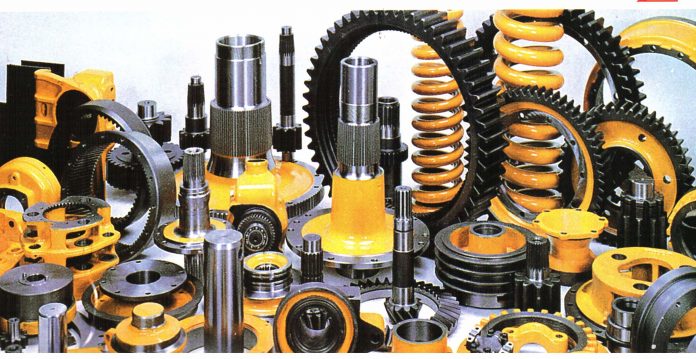ISLAMABAD: As Pakistan’s auto policy enters its second phase, aimed at facilitating new entrants and boosting exports, the Ministry of Industries and Production is now considering a new policy specifically for parts manufacturing.
During the fifth meeting of the Auto Industry Development and Export Committee (AIDEC) held on Tuesday, it was suggested that a separate policy should be developed to address the challenges faced by parts manufacturers.
Auto parts vendors highlighted that once a part is localized, the corresponding variant is often discontinued, leading to significant losses. They recommended that once a part is localized by one Original Equipment Manufacturer (OEM), it should be used by other OEMs requiring similar parts. They also suggested that the localization of parts and sub-components should be time-bound.
The Committee agreed that a ban and penalties should be imposed on the import of used auto parts.
The Federal Minister for Industries and Production, Rana Tanveer Hussain, directed the ministry to devise an Auto Parts Manufacturing Policy aligned with the needs of allied industries. He emphasized that localization of auto parts would result in more competitive pricing of Pakistani-made vehicles in international markets.
He also urged auto industry leaders to focus on improving the quality, pricing, and exports of their products in international markets. Additionally, he instructed the formation of a sub-committee to review and address the issues of the auto industry on a quarterly basis, particularly in terms of regulatory assistance required for exports.
The meeting was chaired by Federal Minister Rana Tanveer Hussain and attended by Secretary MoIP Saif Anjum, CEO EDB Engr. Khuda Bukhsh, and senior officers from the Ministry of Industries and Production, EDB, Ministry of Commerce, Ministry of Science and Technology, FBR, Ministry of Communication, along with representatives from PAMA, PAAPAM, and leading companies such as Ghandhara Industries, Master Motors, Pak Suzuki, Honda Cars, Honda Motorcycles/Atlas Group, Dysin Automobile, United Motors, Honda, Indus Motor Company, Dewan Motors, and Pro Tech.
The Committee deliberated on the implementation of policy instruments under AIDEP 2021-26, including achieving export targets by existing OEMs and new entrants, adding parts to SRO 693(I)/2006, implementing WP 29 Regulations, phasing out concessions on CKD imports for motorcycles and tractors, incorporating EV-specific components for 4-wheelers under the 5th Schedule of the Customs Act, removing sales tax on local inputs procured under the Export Facilitation Scheme (EFS), and duty protection on locally assembled city and intercity buses (diesel, hybrid, and electric).
The auto industry expressed concerns over difficulties in exporting vehicles from Pakistan due to increased duties and taxes. They emphasized the urgent need for Free Trade Agreements (FTAs) and Preferential Trade Agreements (PTAs), as well as consistent policies to enable the localization of parts and components for 2, 3, and 4-wheelers, ensuring competitiveness in international markets.




